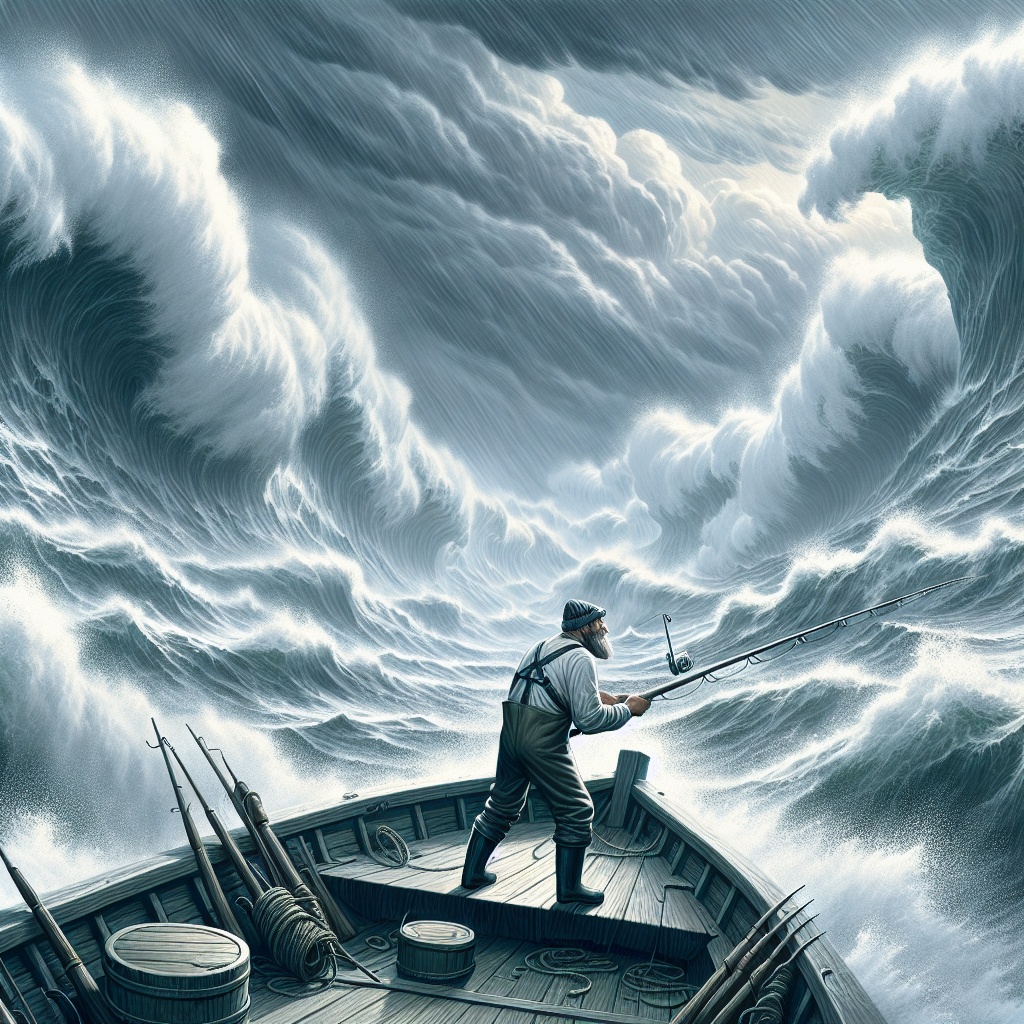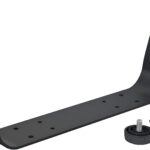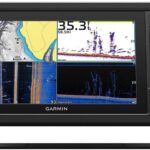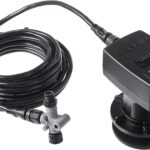Picture yourself out in the fresh open air, enjoying a peaceful day with your fishing rod in hand – perfection, right? Yet, the calm ambiance of fishing can sometimes blind you to the potential underlying risks. The article “Safety First: Navigating Challenges And Dangers In Different Fishing Terrains” expertly examines the unforeseen challenges across numerous fishing terrains. It tackles the vital facet of safety – which should always be prioritized – by detailing precautionary measures and offering comprehensive advice to keep you out of danger. This is your guide to balancing the joy of fishing with the essential responsibility of maintaining safety.
Understanding The Various Types Of Fishing Terrains
Whether you’re an experienced angler or you’re just dipping your toes into the world of fishing, you’ll soon discover that not all fishing spots are created equal. Water bodies, be they freshwater or saltwater, contain different types of fishes, and understanding these different terrains can substantially elevate your fishing game and enhance your safety.
Freshwater Fishing Spots
Freshwater fishing refers to the practice of catching fish in bodies of water such as lakes, rivers, dams, and streams. It’s a popular pastime due to its prevalence and convenience – you can find freshwater in virtually every corner of the world. The diverse array of fish species that thrive in these environments are usually attracted to different baits, so be keen on your choice depending on the specific species you aim to catch.
Saltwater Fishing Areas
Saltwater fishing, on the other hand, is characterized by its thrilling big-game opportunities. It occurs in oceans, seas or any other body of saltwater, including the shorelines, bays, and tidal pools. With saltwater fishing, the possibilities are endless – it can be as straightforward as casting a line off a pier or as adventurous as deep-sea fishing for larger species.
Ice Fishing Terrains
Ice fishing is an exciting and unique fishing experience that involves catching fish through an opening in the frozen surface of a lake or pond. While it offers a thrilling challenge and a chance to catch some coldwater fish species, it poses a unique set of risks, including the potential for thin ice and hypothermia.
Fly Fishing Rivers, Streams and Lakes
Fly fishing is a technique mostly practiced in rivers, streams, and even lakes. It involves casting a virtually weightless, often elaborate fly at the end of your line. This method is known to test both a person’s patience and skill, as it requires precise casting and a deep understanding of fish behavior.
Safety Measures When Freshwater Fishing
A relaxing day of freshwater fishing can quickly turn dangerous if safety precautions aren’t observed. Always keep in mind that you’ll be interacting with nature and its inhabitants, so caution is critical.
Identifying Potential Dangers in Freshwater Environments
Freshwater bodies are often home to various wildlife that may pose a threat. Be aware of snakes or other dangerous creatures lurking in the vicinity. Also, various water-borne diseases can be present, so it’s always advised to avoid ingesting the water, no matter how clean it may seem.
Appropriate Gear for Freshwater Fishing
When preparing for freshwater fishing, it’s essential to have the appropriate gear. This includes a quality fishing rod, various types of baits for different fish, and personal protective equipment such as life vests, hats, and gloves. Additionally, don’t forget a waterproof case for your phone and other valuables!
Managing Wildlife Interactions while Freshwater Fishing
Exercise caution while dealing with the local fauna. Don’t try to pet, feed, or get close to wildlife and do ensure to keep your fishing spot clean, leaving no trash behind, so as not to attract any unwanted animals.
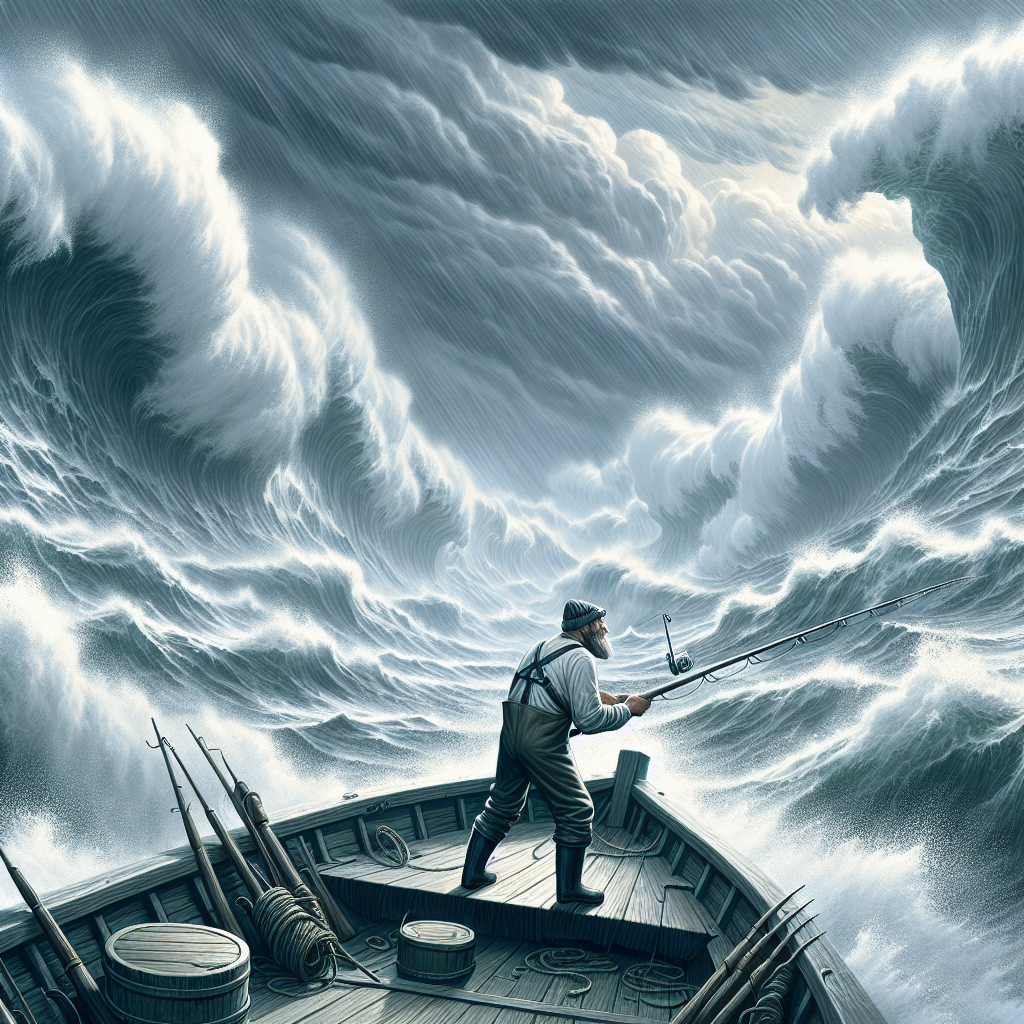
Handling Challenges in Saltwater Fishing
Navigating the high seas for saltwater fishing can be laden with challenges. Adequate preparation can make the difference between a trip you’ll remember for the bountiful catch or one remembered for unwanted excitement.
Understanding Weather Patterns and Tidal Changes
The vastness of the sea and its unpredictable nature requires you to understand weather patterns and tidal changes. Always check the weather forecast before embarking on your fishing adventure. Be aware of the times for high and low tides, as they can affect fish feeding times and your chances of a successful catch.
Identifying Dangerous Marine Life
Marine environments host a wide array of life forms, some of which could be potentially dangerous. It’s vital to recognize the potential presence of these creatures, such as sharks or venomous fish, and know what to do if you encounter them.
Ensuring Safety During Sea Travel For Fishing
Whether you’re in a motorized or non-motorized boat, knowing the basics of marine navigation and having working communications equipment onboard are fundamental safety requirements. Always wear your life jacket, and don’t forget to pack a first aid kit to manage potential injuries or other health emergencies.
Precautions for Ice Fishing Safety
Ice fishing is often considered a staple of cold-weather activities. However, it does come with its unique challenges and dangers that need ample consideration.
Assessing Ice Thickness and Stability
Ensuring the ice where you plan to fish is thick enough to support your weight is the first precaution you should take. As a general rule, the ice should be at least four inches thick for ice fishing. Carry a chisel or ice auger to regularly check ice thickness and avoid areas with cracks or flows.
Protection Against Hypothermia
Fishing out in the cold means you’re at risk of hypothermia. Protect yourself by wearing layers, which offer better insulation, and using windproof and waterproof outerwear. Also, keep a thermos of hot beverages as an added measure to maintain your body temperature.
Safe Handling of Ice Fishing Equipment
Ice fishing equipment has some unique and potentially hazardous features, such as sharp hooks and power augers. Make sure to transport all your tools safely and securely, and teach everyone in your party how to handle their equipment properly.
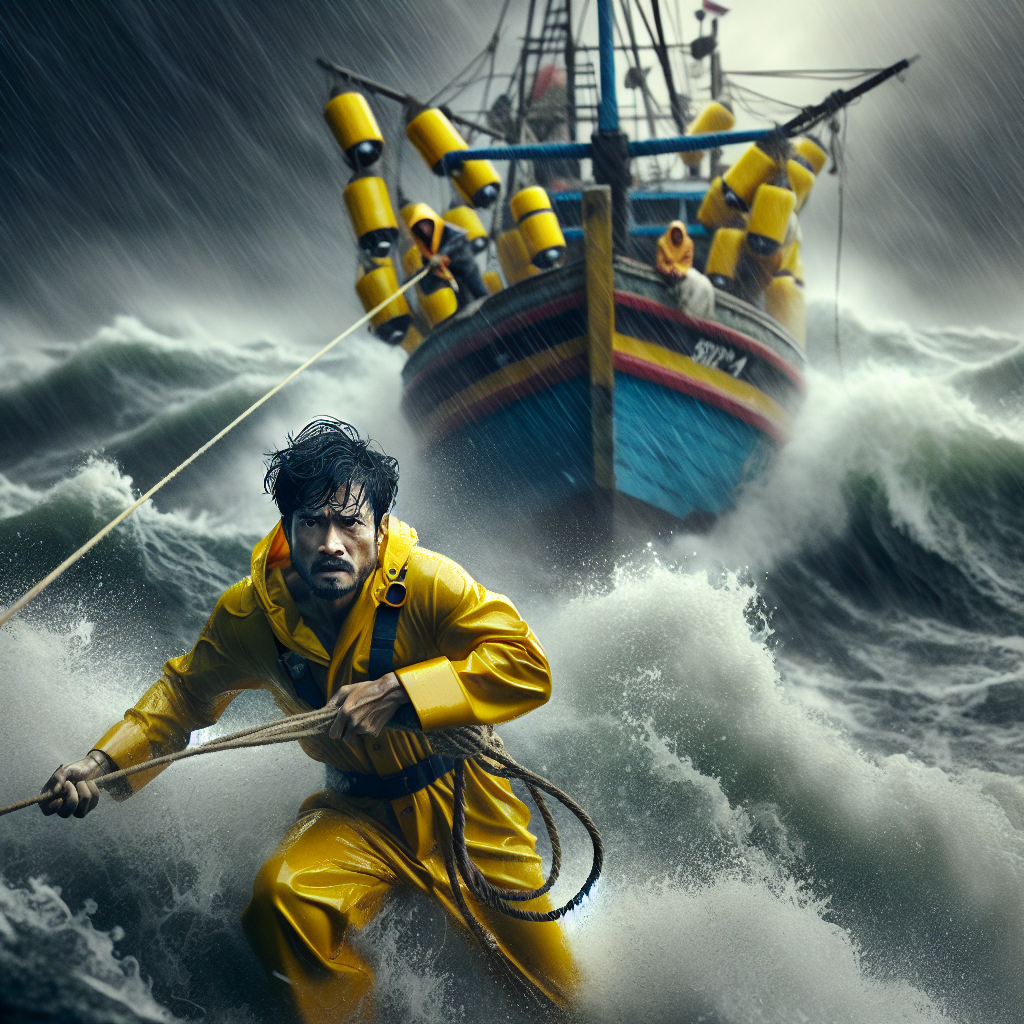
Navigating Hazards in Fly Fishing Terrains
Fly fishing offers a serene way to enjoy the outdoors, but it’s not without its risks. Being aware of these hazards can help ensure that your fly fishing adventure is as safe as it is enjoyable.
Avoiding Injuries From Fly Fishing Hooks
Fly fishing involves constant casting and reeling, increasing the chances that hooks may inadvertently hook a person. To avoid any incidents, ensure you have enough space around you when casting and always be aware of your surroundings.
Managing River Currents and Rapids
Many popular fly fishing spots feature flowing water, and while this can make for a beautiful day out on the river, it can also present some dangers. Always respect the power of the river, and never try to cross a fast-moving current.
Dealing With Inclement Weather during Fly Fishing
Fly fishing is often done out in the open, which exposes you to the elements. Always check the weather forecast before you go, and be prepared with the proper gear whatever the weather, be it hot and sunny, or chilly with a chance of rain.
Importance Of Gear Maintenance for Safety
Investing time in your fishing gear pays dividends in ensuring both a successful catch and your safety. A broken line or rod, a damaged reel, or a dulled hook not only reduces your chances of catching fish, it can also lead to potential accidents.
Regular Checking and Repairing of Fishing Rods
The ease with which you catch fish heavily depends on the condition of your fishing rod. Regular inspection and maintenance, along with prompt repairs when needed, prolongs its lifespan and also ensures your safety while using it.
Proper Storage of Bait and Hooks
Proper storage of both bait and hooks is necessary to ensure they’re ready for use and safe to handle when needed. Bait kept out of a cooler, even for a few hours, can spoil and potentially cause a health hazard. Similarly, loose hooks can cause injuries if not properly stored.
Ensuring Life Jackets and Other Safety Gear Are In Good Condition
Life jackets and other safety gear are not just accessories but potentially life-saving necessities. Regularly inspect them for any sign of wear and tear, replace older equipment when needed and ensure they’re the right fit for your body size.
Emergency Preparedness for Fishing Excursions
While we all hope that our fishing trips will be smooth and enjoyable, emergencies can happen. Being prepared for these emergencies doesn’t just mean bringing the right gear – it means knowing how to use it.
First Aid Training Relevant for Fishermen
First aid training can be invaluable on a fishing trip. Learning how to handle cuts, sprains, or even potential allergenic reactions to fish venom could make a significant difference in emergency situations.
Carrying Sufficient Emergency Supplies
Carrying an emergency supplies kit is non-negotiable during a fishing trip. This should include a first-aid kit, a flashlight, extra food and water, a multitool with a sharp blade, and other survival tools such as a fire starter and a signal mirror.
Understanding Distress Signals and When to Use Them
Being familiar with distress signals – visual and audio – can also be a life-saver if your fishing trip goes wrong. Know when and how to use them, and always let someone know where you’re going and when you’re expected to be back.
Fishing Laws and Regulations for Safety
Respecting fishing laws and regulations is not just about respecting nature – it’s also a critical part of your safety while fishing. Regulations are designed not only to maintain healthy populations of fish but also to protect you, the fisherman.
Importance of Fishing Licenses
fishing licenses are a legal requirement in many regions for a reason. They help manage fish populations, fund conservation efforts, and ensure that fishing practices are safe and sustainable.
Understanding Size and Bag Limits
Every region has guidelines on the size and number of fish that can be caught. Understanding these limits and adhering to them helps to prevent overfishing and ensures the future generations can enjoy fishing.
Respecting Designated Fishing Areas
Designated fishing areas exist for a reason. Not only do these areas provide suitable habitats for fish to thrive, but they also often cover safer and more appropriate locations for fishing, shielding you from potential dangers in prohibited areas.
Role of Conservation in Fishing Safety
Preserving fishing areas and fish species are essential components of sustainable fishing practices. Conservation efforts indirectly contribute to increased safety and improved satisfaction when you’re out fishing.
Respecting Endangered Species Laws
Should you come across an endangered species during your fishing excursion, remember that they are protected by law. Return them carefully and promptly to the water.
Effects of Overfishing on Safety
Overfishing doesn’t just threaten fish populations; it also compromises your safety. Less fish could lead to overcrowded fishing spots and potentially dangerous conflicts over limited resources.
Impact of Littering on Fishing Environments
Most people wouldn’t dream of leaving trash behind, but it bears repeating – littering can have a severe impact on both fishing environments and your safety. Discarded lines or hooks present serious hazards to both local wildlife and other anglers.
Fishing Safety Education and Training
Fishing safety education is crucial to reducing potential hazards and improving overall fishing experiences. It empowers you with the knowledge and skills needed to navigate challenges and return home safely after each fishing trip.
Value of Safety Courses in Fishing
Safety courses specifically designed for anglers cover essential safety areas such as identifying fish and other wildlife, using fishing equipment correctly, or handling weather changes and emergencies. They also help you develop knowledge and confidence – the basic foundations for a safe fishing experience.
Learning From Experienced Fishermen
Experienced fishermen are abundant sources of practical knowledge and experience. They can provide you with useful tips and tricks, help you identify potential issues or challenges, and ensure you’re well-equipped for each trip.
Importance of Continuous Education About Fishing Safety
Just like fishing techniques evolve over time, so do safety measures. Stay abreast of the latest safety techniques, gear, and regulations. Continued education not only enriches your fishing experience but, more importantly, makes sure you return home safely after each trip.
In conclusion, fishing is an exciting way to connect with nature, but it also requires respect for the environment and the understanding that safety is paramount. Understanding you fishing terrain, taking the necessary safety measures, preparing for emergencies, adhering to fishing laws, and updating your safety education are all vital parts of ensuring a safe and satisfying fishing experience.

